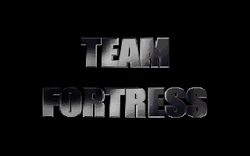Difference between revisions of "Team Fortress"
m |
|||
| Line 15: | Line 15: | ||
| requirements = | | requirements = | ||
}} | }} | ||
| − | '''''Team Fortress''''' | + | '''''Team Fortress''''' is a team and class based online multiplayer First Person Shooter game. The first iteration of Team Fortress, also known as '''QWTF''', was designed and written by Robin Walker, John Cook, and Ian Caughley in 1996. Because of its popularity, it spawned endless amounts of ports and modifications, until [[Valve]] took interest and hired the three creators to work on a stand-alone sequel, [[Team Fortress Classic]] released in 1999 and later [[Team Fortress 2]] released in 2007. |
| + | |||
| + | *Team Fortress or QWTF -- released August 24, 1996 | ||
| + | |||
| + | *[[Team Fortress Classic]] or TFC -- released April 7, 1999 | ||
| + | |||
| + | *[[Team Fortress 2]] -- released October 10, 2007 | ||
==Gameplay== | ==Gameplay== | ||
| − | + | Team Fortress has a high emphasis on teamwork and cooperation involving two teams (red and blue). In the case of QWTF and TFC, some maps also had a yellow and green team, while there is only red and blue teams in TF2. The players battle each other to complete an objective. This often involved [[capture the flag]], [[control points]], Territorial control and Attack and Defend modes in QWTF and TFC. TF2 brought the introduction of Payload and Payload race gametypes. | |
| − | ==History== | + | ==History of QWTF== |
*''August 24, 1996'' - Version 1 .0 released on the Quake engine with the [[Scout]], [[Sniper]], [[Soldier]], [[Demoman|Demolitions Man]] and [[Medic|Combat Medic]] classes. | *''August 24, 1996'' - Version 1 .0 released on the Quake engine with the [[Scout]], [[Sniper]], [[Soldier]], [[Demoman|Demolitions Man]] and [[Medic|Combat Medic]] classes. | ||
*''August 31, 1996'' - version 1.1, [[Heavy|Heavy Weapons Guy]] and [[2Fort]] added. | *''August 31, 1996'' - version 1.1, [[Heavy|Heavy Weapons Guy]] and [[2Fort]] added. | ||
Revision as of 07:26, 27 October 2010
| “You are so small! Is funny to me!” This article is a stub. As such, it is not complete. You can help Team Fortress Wiki by expanding it. |
Team Fortress is a team and class based online multiplayer First Person Shooter game. The first iteration of Team Fortress, also known as QWTF, was designed and written by Robin Walker, John Cook, and Ian Caughley in 1996. Because of its popularity, it spawned endless amounts of ports and modifications, until Valve took interest and hired the three creators to work on a stand-alone sequel, Team Fortress Classic released in 1999 and later Team Fortress 2 released in 2007.
- Team Fortress or QWTF -- released August 24, 1996
- Team Fortress Classic or TFC -- released April 7, 1999
- Team Fortress 2 -- released October 10, 2007
Gameplay
Team Fortress has a high emphasis on teamwork and cooperation involving two teams (red and blue). In the case of QWTF and TFC, some maps also had a yellow and green team, while there is only red and blue teams in TF2. The players battle each other to complete an objective. This often involved capture the flag, control points, Territorial control and Attack and Defend modes in QWTF and TFC. TF2 brought the introduction of Payload and Payload race gametypes.
History of QWTF
- August 24, 1996 - Version 1 .0 released on the Quake engine with the Scout, Sniper, Soldier, Demolitions Man and Combat Medic classes.
- August 31, 1996 - version 1.1, Heavy Weapons Guy and 2Fort added.
- December 22, 1996 - Version 2.0 released on the Quakeworld engine.
- January 22, 1997 - Civilian class added.
- April 4, 1997 - TF Software Incorporated formed.
- April 13, 1997 - Version 2.5, Spy and Engineer classes added.
Video
The original Team Fortress (Version 2.5.)
External links
- Team Fortress - Wikipedia's Team Fortress article
- Team Fortress Classic - Wikipedia's Team Fortress Classic article
- Planet Fortress
